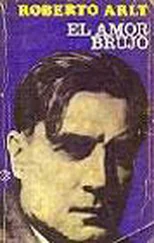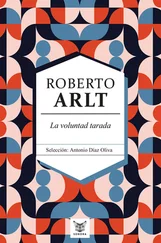‘You have to work, do you understand? You didn’t want to study. I can’t support you. You need to work.’
When she spoke she barely moved her lips, which were as thin as two splints. She hid her hands in the folds of the black shawl that lay over her little sagging bust.
‘You have to work, Silvio.’
‘Work, work doing what? For God’s sake… What do you want me to do? Invent a job? You know very well that I’ve looked for a job.’
I spoke and shook with emotion; resentment at her tough words, hatred at the world’s indifference, at the numbing misery of daily life, and at the same time I was affected by an unnameable pain: the certainty of my own uselessness.
But she insisted as if these were the only words she had.
‘Work at what? Tell me, at what?’
She went mechanically to the window, and smoothed out the wrinkles in the curtain with a nervous motion. As if it was difficult for her to say:
‘They’re always looking for people in La Prensa …’
‘Yes, they want potboys, drones… You want me to be a potboy?’
‘No, but you have to work. The little we’ve got left will last until Lila finishes at school. No more. What do you want me to do?’
From below the hem of her skirt she showed me a worn little boot and said:
‘Look at these boots. Lila has to go to the library every day so as not to spend money on books. What do you want me to do, son?’
Now her voice was troubled. A dark groove cut her forehead in half from her brow to her hairline, and her lips were almost trembling.
‘All right, mama, I’ll go to work.’
So much discontent. The clear blue light showed my soul our life in all its monotony, and my soul wavered, stinking and silent.
From outside came the sad song of children in a circle:
Watchmen on the tower.
Watchmen on the tower.
I want to conquer it.
I gave a low sigh.
‘I wish you were able to study.’
‘That’s not worth anything.’
‘The day that Lila graduates…’
Her voice was weak, tired out with suffering.
She had sat down by the sewing machine, and in her profile, under the line of her brow, her eye was a dark cavern containing a sad white spark. Her poor bent back, and the clear blue light on her hair, gave her an iceberg clarity.
‘When I think…’ she murmured.
‘Are you sad, mama?’
‘No,’ she answered.
And then:
‘Do you want me to speak to Señor Naidath? You could learn how to be an interior decorator. Don’t you like that for a job?’
‘I don’t care.’
‘Well, you’d earn a lot of money…’
I felt an impulse to stand up, to grab her by the shoulders and shake her, shouting in her ear:
‘Don’t talk about money, mama, please…! Don’t speak… Shut up…!’
But we were there, immobile in our pain. Outside the circle of children was still singing its sad song:
Watchmen on the tower.
Watchmen on the tower.
I want to conquer it.
I thought:
‘And this is what life is like, and when I’m older and have a son, I’ll tell him “You have to work. I can’t keep you any longer.” That’s what life is like.’ A cold shudder took hold of me as I sat in the chair.
Now, looking at her, observing her ever-so-tiny body, my heart was filled with compassion.
I thought that I saw her outside of time and space, in a dry landscape, the ground dark and the sky metallic from being so blue. I was so small that I couldn’t even walk, and she was flogged by the shadows, was in anguish, and she walked by the edge of the road, carrying me in her arms, warming my knees with her breast, stretching my whole small body against her thin body, and begging for me, and she gave me her breast, a hot sob dried her mouth, and she took the bread from her own hungering mouth and put it in my mouth, and took the sleep from her night to deal with my complaints, and with shining eyes, with her body dressed in its wretched rags, so small and so sad, she opened herself up like a veil to give cover to my sleep.
Poor mother! I would have liked to embrace her, to lay her white head on my breast, to ask her pardon for my harsh words, and suddenly, into the long silence that we both were keeping, I said in a trembling voice:
‘Yes, I’ll go to work, mama.’
Stolidly:
‘That’s good, son, that’s good…’ And again a deep pain sealed our lips.
Outside, over the rosy crest of a wall, a musical stave flashed silver against the blue sky.
Don Gaetano’s bookshop, or rather, his used book store, in Lavalle Street, Number 800, a huge room, stuffed to the ceiling with books.
It was larger and darker than Trophonius’s cave.15
Wherever you looked were books: books on tables made out of planks on sawhorses, books in display cases, in the corners, under the tables and in the basement.
A large door showed passers-by what the cavern contained, and out on the street there hung volumes of stories for vulgar imaginations, Geneviève de Brabant and The Adventures of Musolino . Across the street, just as in a beehive, people buzzed around the entrance to a cinema, where the bell rang incessantly.
At the counter next to the door, Don Gaetano’s wife attended customers: she was a fat and pale woman with chestnut hair and eyes that were admirable for their expression of green cruelty.
‘Is Don Gaetano in?’
The woman pointed out a large man in shirtsleeves, who was in the doorway watching people come and go. He had a black tie round his naked neck, and the hair that hung uncontrolled over his forehead allowed the points of his ears to show through its ringlets. He was a good-looking man, vigorous and with dark skin, but under his long eyelashes his large watery eyes did not inspire confidence.
The man took the letter that recommended me, and read it; then, giving it to his wife, he started to examine me.
A large wrinkle crossed his forehead, and by his spying, ingratiating attitude you could see that he was a naturally suspicious and devious man who was also sickly-sweet, who faked his sugared kindness and who was falsely indulgent in his loud laughter.
‘So you already worked in a bookshop?’
‘Yes, boss.’
‘And the other bookshop did lots of business?’
‘Enough.’
‘But it didn’t have as much books as here, eh?’
‘Not even one-tenth as much.’
Then he spoke to his wife:
‘And His Worship won’t come to work no more?’
His wife said in a bitter voice:
‘These lousy bums are all the same. When they’ve had enough to eat and learnt how to work then they go.’
She said this, and then she leant her chin into the palm of her hand, showing a strip of naked arm under the sleeve of her blue blouse. Her cruel eyes were fixed on the bustling street. The cinema bell kept on ringing, and a sunbeam came down between two high walls to light the dark front of Dardo Rocha’s building.16
‘What do you want to earn?’
‘I don’t know… You tell me, boss.’
‘Okay, look… I’ll give you a peso and a half, plus room and board, you’ll live like a king here, that’s for sure.’ The man bowed his unruly head. ‘There’s no timetable here… the busiest hours are from eight p.m. to eleven…’
‘What, eleven o’clock at night?’
‘What do you care, a kid like you’s up till eleven anyway watching the girls go by. And in the morning we get up at ten.’
Remembering the positive opinion Don Gaetano had of the person who recommended me, I said:
‘That’s fine, but because I need the money you’ll have to pay me every week.’
‘What, you don’t trust us?’
‘No, señora, but because we need things in our house and we’re poor… You understand…’
Читать дальше












